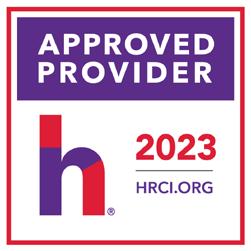Education Matters











In 2017, Plaintiff Michael Grabowski was a firstyear student-athlete at the University of Arizona (University) on an academic and athletic scholarship. The University recruited him to join its Cross Country and Track and Field Teams. Starting in August 2017, his teammates bullied him and used homophobic slurs almost daily because they perceived him to be gay. Mr. Grabowski’s father reported the bullying to a coach, Mr. Li, who promised to investigate the bullying issue. Mr. Grabowski’s mother also emailed the team’s sports psychologist asking her to discuss the bullying with Mr. Grabowski. His teammates also posted a homophobic and harassing video in their team chat group about Mr. Grabowski. When Mr. Grabowski complained about this to his coaches, the coaches dismissed his complaints and acted as if they did not know about the bullying. Once, when the Mr. Grabowski named the teammates who bullied him, a coach responded that he “can’t single out the top two runners on the team.” After this identification, Mr. Grabowski claimed that his coaches embarked on a concerted effort to demoralize him. For example, he claimed an assistant coach scolded him for “faking an illness,” even though a blood test later revealed that he had a viral illness at the time. During the last meeting, the coaches denied knowledge of the bullying, told Mr. Grabowski he did not fit in, and scared him so badly that he had a spontaneous bloody nose and fainted. The coaches then dismissed Mr. Grabowski from the team.
Mr. Grabowski sued employees of the University for a violation of Title IX due to their deliberate indifference to his bullying, a retaliation claim under Title IX, and a Section 1983 constitutional violation for punitive damages. The trial court dismissed all claims except for the retaliation claim and denied leave to amend. Two months later, the court ruled in favor of the University for the retaliation claim because Mr. Grabowski “failed to allege facts showing that he engaged in a protected activity.” Mr. Grabowski appealed.
On appeal, the Ninth Circuit Court of Appeals ruled that Title IX prohibits discrimination on the basis of perceived sexual orientation, not just actual sexual orientation. Mr. Grabowski did not allege that he was gay, but even so, the discrimination against him fell under the umbrella of discrimination on the basis of sex for the purposes of Title IX. The Ninth Circuit allowed Mr. Grabowski to amend his complaint alleging violation of Title IX to show that his education was essentially denied due to the bullying, the only element of the Title IX harassment claim left unanswered. The Ninth Circuit also remanded Mr. Grabowski’s retaliation claim because he showed that he suffered an adverse action of scholarship cancellation and removal from the team and participated in a protected activity of reporting sex discrimination.
The Ninth Circuit dismissed his Section 1983 claim and his request for punitive damages on the grounds that his athletic scholarship was not a property right and therefore no constitutional rights were violated.
Grabowski v. Arizona Bd. of Regents, (9th Cir. 2023) No. CV19-00460-TUC-SHR, 2022 WL 1128936 (D. Ariz. Apr. 15, 2022), rev’d and remanded, No. 22-15714, 2023 WL 3961123.
In 2011, Northern State University (University) hired Dr. Thomas Orr as a tenure-track professor for the Health Physical Education Department within the University’s School of Education. Dr. Orr served as the Department’s “coordinator,” a position with a heightened level of responsibility. In 2015, the University hired Dr. Kelly Duncan as the Dean of the School of Education, despite Dr. Orr’s disagreement. During Dean Duncan’s first semester, she began to have issues with Dr. Orr and confrontations between her and Dr. Orr worsened over time.
In 2017, Dean Duncan hired a chair position that replaced Dr. Orr’s coordinator role. After this decision, Dr. Orr complained about the reduction of his role and suggested reinstatement. He also raised allegations of racist discrimination towards a former professor and mismanagement by Dean Duncan.
Soon after, Dr. Orr applied for promotion and tenure. Dean Duncan was on the tenure committee and did not recuse herself. A majority of members voted against Dr. Orr’s tenure application, one of whom was Dean Duncan, and the committee forwarded its recommendation to the President. The University evaluates its tenure decision based on teaching, service, and research. The University’s President denied Dr. Orr tenure status due to lack of progress in his scholarship.
Around the same time Dr. Orr applied for tenure, Dr. Orr requested information about paternity leave from the head of Human Resources. She told him about the University’s policy allowing him to use six weeks of paid leave for his paternity leave. Dr. Orr filled out a Family Leave form stating that he intended to take zero to thirty days of leave.
Dr. Orr filed suit against the University, making several claims. The first claim alleged that the University violated the Family Medical Leave Act (FMLA) by interfering and retaliating against his use of paternity leave. He also alleged that this interference with his paternity leave was a violation of Title IX due to discrimination on the basis of sex. He also claimed that the University retaliated
against him for opposing racial discrimination, violating 42 U.S.C. Section 1981 and the First and Fourteenth Amendments of the United States Constitution.
The United States District Court ruled that the University did not deny Dr. Orr FMLA benefits to which he was entitled, and therefore he had no legitimate claim of interference. Dr. Orr claims he only took six weeks of FMLA leave because the University’s policy only allowed him to use thirty days of paid sick leave (which translated to six work weeks), but he should have been able to use other available sick time. The Court concluded that Dr. Orr could not show that the University ever denied him an additional six weeks of FMLA leave because he never requested it.
However, the Court found that Dr. Orr could establish a prima facie claim of retaliation because the University made an adverse employment decision of denying his tenure after Dr. Orr had taken his paternity leave. Even though the President had a legitimate, nondiscriminatory reason to deny tenure, Dr. Orr was able to show that the alleged basis for denial could be pretext, because the University first indicated that the reason for denial of tenure was Dr. Orr’s lack of collegiality then later stated that its reasons for denying him tenure were due to his substandard research record.
As for Dr. Orr’s Title IX claim that the University discriminated against him based on his sex because of his use of paternity leave, the Court ruled in favor of the University due to its legitimate nondiscriminatory reason to deny tenure. The University President stated that the reason he denied Dr. Orr’s tenure application was because he was deficient in the research category, and Dr. Orr admitted to this.
Finally, as to Dr. Orr’s claim that he made protected statements regarding Dean Duncan’s discriminatory treatment of another professor, the Court found that Dean Duncan was not entitled to qualified immunity. The Court concluded Dr. Orr could bring a First Amendment claim of retaliation against Dean Duncan and the University because they did not argue that Dr. Orr’s speech had an adverse effect on the efficiency of its operations, nor that its governmental interest outweighed Dr. Orr’s interest in his speech.
The court refused to reinstate Dr. Orr to his former position or decide on the matter of his tenure.
Note:
The U.S. District Court of South Dakota decided this case, and therefore it is not binding in California. However, this case provides insight on how a court ruled on a University’s handling of an employee’s request for tenure and paternity leave around the same time. This case shows the importance of articulating legitimate, nondiscriminatory reasons for denying a faculty member’s tenure application.
On May 26, 2023, the U.S. Department of Education (DOE) published the upcoming date of the final Title IX of the Education Amendments 1972 regulations (Title IX) to October 2023. In July 2022, the Department published proposed regulations for Title IX that sought to protect students from sexual harassment and assault and LGBTQI+ students from discrimination. Since then, the DOE received and reviewed more than 240,000 public comments on the proposed changes. The DOE also anticipates releasing its proposed Athletics regulation in October 2023, which received over 150,000 comments from April to May 2023.
The Title IX updates seek to better define and protect students and employees from sex discrimination and harassment. To do so, the updated language clarifies that the prohibition of discrimination based on sex include discrimination based on sex stereotypes, pregnancy status, sexual orientation, and gender identity. Schools must provide supportive measures for students who have brought complaints or been accused of sex discrimination; previously, this only applied to situations involving sexual harassment. The new regulations also clarify that Title IX applies to discrimination based on sexual orientation and gender identity and make clear that, except in limited areas set out by statute or regulations, preventing students from participation in activities consistent with their gender identity causes harm in violation of Title IX.
The DOE also seeks to expand the ability of affected parties to seek recourse under Title IX. The proposed regulations clarify and bolster the rights of parents and guardians to act on behalf of a student in secondary or elementary school. In addition, schools must share
their nondiscrimination policies with all students, employees, and other participants in their programs or activities. The proposed regulations also seek to protect those who report from retaliation both from the school and peers.
Further, the DOE revised requirements so that schools are required to respond promptly to investigations of all sex discrimination complaints, compared to the current requirements, which only cover formal complaints of sexual harassment. Schools would also have to train employees to notify the Title IX coordinator and respond to allegations of sex-based harassment. The new regulations also update the investigation procedures and include requirements like requiring schools to have a process for decision makers to assess the credibility of parties and providing both parties an equal opportunity to present evidence.
The DOE released the proposed changes separately for athletics. These changes continue to ensure that women and girls are provided an equal athletic opportunity and expands that definition to disallow schools from a categorically ban on transgender students participating on teams that align with their gender identity. The DOE’s changes instead allow schools to be flexible, allowing them to create instead team eligibility criteria that serve important educational objectives, like preventing sports-related criteria. Schools would also have to create criteria that minimizes harms to students who may be limited or denied in participating in male or female teams consistent with their gender identity. Under these regulations, the DOE expects that elementary schools would allow students to participate in school sports teams consistent with their gender identity, but that sex-related criteria may be permitted in some cases for high school and college age students. This aligns with Congress indicating in the Education Amendments of 1974 Section 844 that athletic contexts present special considerations.
The California State Teachers’ Retirement System (CalSTRS) formed two limited liability companies (LLCs) for the purpose of purchasing and holding title to two investment properties in Oakland. CalSTRS was the sole member of both LLCs. Following the purchases, the City of Oakland and the County of Alameda imposed documentary transfer taxes on the two LLCs totaling over $3.5 million. The LLCs paid the tax, but then filed a petition for writ of mandate seeking refunds of those payments claiming they were exempt from such taxes.
The LLCs argued that because CalSTRS was exempt from the property transfer tax pursuant to Revenue and Taxation Code section 11922, and CalSTRS was the only member of the LLCs, the LLCs were also exempt. The trial court disagreed, finding that the LLCs are not governmental entities even if a governmental entity is the sole member of the LLC.
The Court of Appeal affirmed the trial court’s ruling. The Court of Appeal found that statutes governing the two LLCs provide that an LLC is an entity distinct from its members. The Court cited both legislative and administrative records to show that government entities can be sole members of an LLC, but still maintain a separateness. The two LLCs were therefore separate entities distinct from their member, CalSTRS, and were therefore subject to the documentary transfer taxes.
The Court concluded by saying the legislature could enact legislation that provides that the separateness of the LLC and the government entity be overlooked in the context of documentary transfer taxes, but ultimately that issue remains with the legislature.

While this decision narrowly addresses the documentary transfer tax exemption, it serves as a valuable reminder for Districts to proceed with caution when creating LLCs or other entities to engage in transactions on its behalf as different legal requirements and obligations may apply.

Jordan Carman, an Associate in our Los Angeles office, provides labor, employment, and education law expertise to our public and private education clientele. Prior to joining LCW, Jordan worked at The Child Care Law Center in Berkeley, CA where she secured childcare subsidies for low-income clients and provided technical assistance to the Department of Social Services on the drafting of regulations and sub-regulatory guidance affecting families and childcare providers.



Super Lawyers is a rating service of outstanding lawyers from more than 70 practice areas who have attained a high-degree of peer recognition and professional achievement. The selection process is multi-phased and includes independent research, peer nominations and peer evaluations. Each year, no more than 2.5 percent of the lawyers in the state are selected as Rising Stars.




4 years

Todd Roberts worked as a Safety and Environmental Coordinator for the Springfield Utility Board for over two years. During that time, the Springfield personnel policies stated that 1) employees were expected to keep unscheduled absences and tardiness to a minimum, 2) requests for time off had to be made in advance, and 3) dishonesty would generally result in immediate dismissal.
In August 2019, Roberts took unscheduled time off. He alerted Springfield that morning and stated “I will be out all today working on the kids school/sport registrations and such to ensure they are all ready for school next week.” Four minutes later, however, Roberts emailed a co-worker: “I’m looking at your boat’s slip right now headed to the Pig N Pancake.” Roberts later attempted to delete this email.
After discovering this possible misrepresentation, Springfield hired two attorneys to investigate the incident and provide legal advice. As part of this investigation, Roberts was admonished both in writing and orally. When Roberts was told in writing that “While this matter is being investigated, you are prohibited from engaging in communication in any form with any employees of SUB. … Any contact with SUB employees, including your supervisor, regarding this matter will constitute gross insubordination and be subject to disciplinary action…”
At the beginning of Roberts’ first interview, the investigating attorney stated: “To protect the integrity of the investigation, you are restricted from discussing it with other employees of SUB while it is ongoing”. At the beginning of Roberts’ second interview the investigating attorney stated: “I’m going to instruct you not to communicate with any potential witnesses about the information that you’ve given . . . Do not communicate with potential witnesses we’ve discussed about the investigation or about the information you’ve provided in the investigation.” The attorney then clarified that the communication restriction applied only during the pendency of the investigation, did not apply to Roberts’ discussions with his wife, did
not prevent Roberts’ attorney from contacting witnesses on Roberts’ behalf, and that Roberts would have the opportunity to contact potential witnesses when the investigation was complete. Roberts was terminated because of the findings of the investigation. He sued, alleging that Springfield violated his First Amendment right to free speech by instructing him not to speak with other employees during the investigation. A district court granted summary judgment for Springfield. Roberts appealed to the Ninth Circuit Court of Appeals.
The Ninth Circuit applied the Pickering v. Board of Education balancing test. This test first determines whether the employee spoke as a citizen on a matter of public concern. If not, there is no First Amendment issue. If the employee did speak as a citizen on a matter of public concern, then the court considers whether the relevant government entity had an adequate justification for treating the employee differently from any other member of the public.
Speech involves matters of public concern if it relates to any matter of political, social, or other concern to the community, or if it is a subject of legitimate news interest.
Here, the restriction on speech affected Roberts’ personal ability to discuss only the investigation into his own alleged violation of SUB personnel policies governing time off and employee dishonesty. Further undercutting Roberts’ claim, his attorney was not restricted from contacting any SUB employees about Roberts’ alleged actions during the investigation. The Court held the speech was not about a matter of public concern.
Roberts argued that the “gag order” was not limited to topics related to the investigation but rather encompassed speech regarding alleged mismanagement and employer failings. The Ninth Circuit reviewed the various admonitions he was given, which on balance, showed that the restriction only pertained to communication with Springfield employees or other potential witnesses regarding the ongoing investigation into his alleged misconduct. The Ninth Circuit therefore affirmed the District Court’s grant of summary judgment for Springfield.
Roberts v. Springfield Utility Board, 2023 WL 3402213 (9th Cir.).
Note:
This case differs from the PERB cases that prohibit employers from placing blanket gag orders on employees during an investigation, unless the employer can prove that an employee will fabricate or spoil evidence. (See Los Angeles Community College District (2014) PERB Dec 2404-E.) The PERB cases rely on the employee’s collective bargaining rights to communicate with co-workers regarding wages, hours and working conditions. This Ninth Circuit case contains a First Amendment analysis only.

This three-hour presentation is designed to provide an overview of what it means to be a public employee, the important role of a public servant and how to succeed in public service. The presentation will cover the following issues:
• The difference between public vs. private sector employment
• The responsibilities and role of a public employee
• Common labor laws for public employees
• Ethical obligations of public servants
• Efficient use of public resources
• Providing customer service
• Creating and maintaining a work environment of respect, dignity, and integrity for the citizens we serve
For more information, visit our website here!

Deanna Hodges began working for Cedars-Sinai Medical Center in 2000 as an administrator with no patient care responsibilities. In 2017, Cedars announced a new policy requiring all employees, regardless of their role, to be vaccinated by the beginning of flu season. This was the latest expansion to Cedars’ longstanding efforts to limit employee transmission of flu, which had become more urgent following multiple patient deaths relating to flu.
As required by law, Cedar’s policy made exemptions for “valid medical or religious” reasons. Cedars established a very thorough exemption evaluation process through which a panel would grant an exemption only for a “recognized medical contraindication”. Hodges did not want to get the flu vaccine, despite not having any contraindication to the flu vaccine. Hodges and her doctor merely stated on the exemption form that Hodges has a “History of multiple allergies post treatment for colorectal cancer with chemoradiation. Extreme unwell state results from injections and immunizations. No direct patient contact.” Hodges’ doctor stated in his deposition that he was not communicating that Hodges had a recognized contraindication to the flu vaccine.
Hodges submitted her form. She was informed that her form was illegible and she would be suspended and terminated if she did not agree to get the flu vaccine. Hodges attempted to convince a variety of personnel that her exemption request was valid and should be granted. The panel denied her exemption request. Hodges’ doctor then attempted to persuade her to receive the vaccine. Hodges steadfastly refused and was terminated effective November 9, 2017.
Hodges filed a lawsuit against Cedars alleging: 1) disability discrimination; 2) failure to engage in the interactive process; 3) failure to accommodate a disability; 4) retaliation; 5) failure to take reasonable steps to prevent discrimination, harassment, and retaliation; and 6) wrongful termination. Cedars received summary judgement and Hodges appealed to the California Court of Appeal.
After a thorough review of the evidence, including depositions, declarations, and exhibits, the Court of Appeal decided that Hodges did not have a medically valid contraindication that constituted a disability. Even if she did, the Court of Appeal stated, Cedars terminated Hodges for a legitimate nondiscriminatory reason; noncompliance with a bona fide employer policy aimed at protecting and saving lives.

Hodges v. Cedars-Sinai Medical Center, 2023 WL 3558767 (Cal. Ct. Appeal).


For more information on some of our upcoming events and trainings, click on the icons:






16 years
11 years





 Shelline Bennett Rick Bolanos
Amy Brandt
Tony Carvalho
2 years
4 years
Nathan Jackson
2 years
Super Lawyers
Shelline Bennett Rick Bolanos
Amy Brandt
Tony Carvalho
2 years
4 years
Nathan Jackson
2 years
Super Lawyers

An LCW team led by Partner Oliver Yee, Senior Counsel Alison Kalinski, and Associate Millicent Usoro convinced a court to grant a three-year Workplace Violence Restraining Order that prevents a former employee from harassing and threatening three community college district employees. The judge found that although the former employee has a First Amendment right to threaten another with a legal claim, the vulgar and threatening portion of the former employee’s text messages had no legitimate purpose. This Restraining Order prohibits the former employee from contacting, approaching, or interacting with the three employees for three years.
LCW Associate Attorney Usoro put together declarations from the affected members of the district community and presented this evidence, along with testimony, to the court to obtain a temporary restraining order. Senior Counsel Kalinski presented evidence from two of the community college district employees that felt harassed and threatened in a direct examination in court. Kalinski also cross-examined the former employee who had been harassing the employees. Their case was enough to convince the court that there was clear and convincing evidence that would cause a reasonable person to be seriously alarmed, annoyed, and harassed and that irreparable harm would result absent a restraining order.
Happy Summer!
We will not have a newsletter for the month of July and will resume in August.
Whether you are looking to impress your colleagues or just want to learn more about the law, LCW has your back! Use and share these fun legal facts about various topics in labor and employment law.
• Under the Child Abuse and Neglect Reporting Act (CANRA), a community college district employee who is a mandated reporter must sign a statement that they have knowledge of the child abuse reporting requirements. The statement must include copies of various sections of the CANRA. (Pen. Code Section 11166.5(a).) However, community college districts are not required to provide training on the mandated reporting requirements of CANRA. Instead, CANRA “strongly encourages” training regarding an employee’s mandated reporting obligations under the law. Additionally, if a college operates a licensed child day care facility, administrators and employees of such facility are required to attend mandated reporter training.
• Education Code Section 87766 requires a community college district to provide leaves of absence from duty for academic employees who are required to be absent due to pregnancy, miscarriage, childbirth, and recovery. However, community college districts are not required to pay the academic employee for absences due to disability related to pregnancy, miscarriage, childbirth or recovery unless the district grants paid leave for other non-industrial illnesses, injuries, or disabilities.
• According to an article by Cal Matters, a growing number of college professors in California are choosing to encourage the limited use of Artificial Intelligence (AI), such as ChatGPT, in classroom assignments. However, California’s public higher education systems have not yet created a formal policy regarding the use of AI in the classroom.
The LCW Labor Relations Certification Program is designed for labor relations and human resources professionals who work in public sector agencies. It is designed for both those new to the field as well as experienced practitioners seeking to hone their skills. Participants may take one or all of the classes, in any order. Take all of the classes to earn your certificate and receive 6 hours of HRCI credit per course!

Join our upcoming HRCI Certified - Labor Relations Certification Program Workshops:
1. July 20 & 27, 2023 - Bargaining over Benefits
2. August 17 & 24, 2023 - Communications Counts!
3. September 7 & 14, 2023 - The Rules of Engagement: Issues, Impacts & Impasse

Visit our website: www.lcwlegal.com/lrcp
The use of this official seal confirms that this Activity has met HR Certification Institute’s® (HRCI®) criteria for recertification credit pre-approval.


LCW has four community college district consortiums across the State! Consortium members enjoy access to quality training throughout the year, discounts on other LCW products and events, and unlimited, complimentary telephone consultation with an LCW public education attorney on matters relating to employment and education law questions (including questions involving governance, business, facilities, and student matters!). We’ve outlined a recent consortium call and the provided answer below. Client confidentiality is paramount to us; we change and omit details in the ERC Call of the Month.
This consortium question was answered by Meredith Karasch, Senior Counsel in LCW’s Los Angeles office. She can be reached at 310.981.2059 and at mkarasch@lcwlegal.com
If an employee tells their employer they are medically unable to perform work in any capacity, can the employer forego the Skelly process?
When an employee is separating from employment and placed on a 39-month list because the employee is medically incapable of performing the duties of their position, the employee is entitled to a Skelly-like due process, and the employer should provide the employee with a Notice of Intent to Separate with all of the information supporting its decision.


 Liebert Cassidy Whitmore
Liebert Cassidy Whitmore